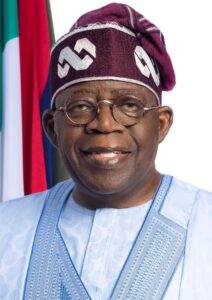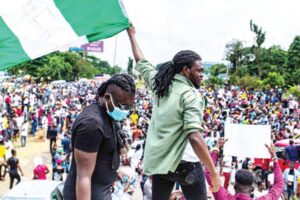
What Time is it for Nigeria?
By Obiageli Ezekwesili
There is Time for everything. Figuratively speaking, a person or country can be asked, “What Time is it?” with an intention to trigger a deep rumination from those who should know or care. The start of the New Year after a bloodied end of 2023 with yet another mass brutal killings of over 150 children, youth, women, and men during the Christmas week, in several villages of Plateau State did provide the context for one to ask. So, I ask first, those among my fellow citizens who have only always hoped against hope that our country will ultimately Become, “What Time is it for Nigeria?” I next ask all those who have held and the ones currently holding political and public leadership positions in the country, “What Time is it for Nigeria?”
The blood of Fidelis Solomon and over one hundred and fifty other victims gruesomely massacred in the latest Plateau State carnage, and the blood of the hundreds of thousands of innocent Nigerians cumulatively killed in the North Central, Northeast, Northwest, Southeast, Southsouth and Southwest regions of our country are crying, “What Time is it for Nigeria?” What is your answer, fellow citizens?
This really is the hardest question that all the people of goodwill in Nigeria must ask and answer candidly. Anyone who attempts to evade asking and confronting the inevitable tough answer to this question merely lives in delusion.
For me, it is the critical time to confront the hard conversations on how to create a viable Nigeria that transits from mere country to a nation of people who though diverse have collectively negotiated to unite themselves around a shared sense of nationalism to build a just, equitable, peaceful, orderly, prosperous, stable, resilient, and ethical society based on shared values, national vision and common identity. It is the most feasible way to avoid Nigeria becoming a truly bankrupt country with all her people.
Bankruptcy, an extremely scary word, was recently used by Nigeria’s National Security Adviser (NSA), Mallam Nuhu Ribadu to describe the financial situation of the country. In his words: “We are facing very serious budgetary constraints. It is okay for me to tell you. It is fine for you to know. We have a very serious situation… We have inherited a very difficult country, a bankrupt country to the extent that we are paying back what was taken. It is serious.”
Bankruptcy in corporate use, means the death of an entity because it stops all operations and goes completely out of business. Death is the loss of soul. Like humans, a country also has a soul, and it contains the values and boundaries of what is acceptable or abhorrent behavior. For example, in Nigeria, there was a time when a certain modicum of values served as filters of what behaviors were rewarded and punished. The soul of our country began to die when public leaders became bad examples, disdaining values and rewarding vices. As the people either helplessly watched on or simply did not care and many chose to join the leaders in sliding the scale of values, the soul of Nigeria started to erode. The soul of the country has eroded to a degree where today, the value and respect for human life is closer to zero than to one.
The bankruptcy of a country and people which relegates the dignity of life is much more damaging than empty public coffers. Public leaders who do not value the life of their fellow human being bankrupt the soul of their country. The cyclical pattern of empty coffers in a country vastly endowed with the natural, human, and other resources to have emerged as a globally productive and competitive economy is a factor of Nigeria’s values bankruptcy. The Nigerian-State run by governments which are inured to the debasement of human lives is bankrupt of soul.
We shockingly arrived at a time in our country when regardless of the number of mass abductions, maiming and killings of fellow humans being in our country, the Nigerian-State moves on without an iota of accountability and consequence for especially murderous criminals. We are in a time when Nigerians have normalized and accepted that their governments and leaders can conduct, enable, or ignore acts of impunity. A time in which the lines between reward and punishment are so blurred that the country exists without any form of deterring consequence for the most atrocious behaviours.
So, even though evidence abound in our public finance data to support Ribadu’s assessment of the current state of the country’s finances, Nigeria’s reality is worse than mere financial bankruptcy. An empty treasury is the least of insolvencies that stymie Nigeria and Nigerians. The substantial and existential danger is that Nigeria as a country is totally bankrupt of values, void of soul and headed into a cataclysmic collapse of the kind that more money cannot change. What can more money do to reverse the callous acceptance of a brutish, short, and nasty existence into which majority Nigerians have now acculturated their minds?
What will more money do for a people who no longer expect their leaders to take responsibility for basic duties including accountability for failure to produce results? What can more money do for a country where kidnapping of citizens grew into an industry nationwide? The Nigeria we all lament today is a sad example of what failure to agree and uphold a national integrity and values system can do to any people. Nigerians chose to be lethargic to how our country is governed, so our public leaders willfully distorted incentives and sanctions in our society.
Yes, the public coffers are empty, but the time now is to tackle the cause and not one of the symptoms of our national bankruptcy as a country and people. Nigeria must first overcome the existential sustainability question as our top priority agenda at this time. Is it not staggeringly alarming that Nigeria’s contemporary peer-countries are contending to lead the 21st Century by shifting global economic dominance while we in contrast are steadily regressing farther away from being a country? Nigeria’s multiple existential threats to retaining the status of country are fiercer than ever before. We now barely tick the boxes for the full status of a country, properly so called.
A Nigeria that is fast losing most of the basic criteria that qualified us to be included in the United Nations list of recognized countries should alarm all patriots into action to save and avoid the tendentious pattern of our political class tunnelling our focus to addressing symptoms instead of their underlying causes.
Our evident state of affairs is that Nigeria now more than ever before ticks closest to the box of a failed state on the criteria of renowned Fund for Peace and Foreign Policy magazine. The index annually uses Economic, Political and Social factors to evaluate fragility and resilience of countries. Nigeria has every year over the last ten years remained within the group of 15 countries out of 170 that rank closest to fragile-failed country status. For example, on the economic front, Nigeria is entangled with endemic issues of systemic and widespread grand as well as petty corruption, “high economic inequality, economic development along group lines, low growth, severe economic decline and rising extreme poverty.”
In the context of the Fragility Index on the political front, Nigeria experiences “breakdown of capacity of government to function usually characterised by delegitimisation of the state, deterioration of public services, suspension, or arbitrary application of law; widespread human rights abuses, security forces operating as a “state within a state” often with impunity, rise of factionalised elites, and rise of external political agents and foreign states.”
On the social metrics, the index evaluates Nigeria’s “depleting social capital, loss of social cohesion, a squandering and poor management of its diversity, demographic pressures and tribal, ethnic and/or religious conflicts, massive internal and external displacement of refugees, creating severe humanitarian emergencies, widespread vengeance-seeking group grievances and sustained human flight” and such like.
It will amount to a historical missed opportunity if Nigerians do not in 2024 collectively resist the syndrome of tunneling our focus to the lowest common denominator of our problems. The Federal Government in its current narrative about public financial distress is leading everyone down that path because even though it is true that Nigeria and Nigerians are faced with the severest fiscal distress ever experienced in recent history, our single-minded focus must be the battle for the Soul of Nigeria. No amount of money from higher oil prices, tax collections and more domestic and external debts can win this battle for us.
More money cannot save a country and people that have lost their soul. Even then, the fact is that from all evidence available in the public domain, additional money earned by Nigeria now merely and mostly feeds the avarice and voracious greed of Nigeria’s politicians anyway as the budget process has often revealed. The question that should therefore seize the minds of citizens of Nigeria and move all in the direction of the right actions is found in the timeless words of scripture; “Behold, what does it profit a man, nay, a woman and people of a country, to gain the whole world but lose their soul?”
There is a raging battle for the Soul of Nigeria, a country which has turned into a massive killing field and mass graves overrun with the blood of innocent children, youth, women, and men brutally murdered, battered or abducted without any consequence to the criminals.
Every Nigerian of goodwill – regardless of ethnicity, religion, economic status, and political persuasion – knows that the Nigeria we once knew is gone. The collective momentum must now swiftly gather to the tipping point for Nigerians to compel a legally mandated National Conversation that will fundamentally negotiate and determine the value we place on our lives and the values that will uphold, preserve, and dignify a New Nigeria and Nigerians. Throughout history, dead countries commenced their dying when human life ceased to have worth. This is the kind of time Nigeria finds itself, but we can by a collective will confront the demons that have dwarfed the realization of our country’s giant potentials and change the course of our checkered history.
Could this be the ironic time a lethally flawed government of President Bola Tinubu which continues struggling with a crisis of legitimacy, makes the urgent and historic choice to facilitate and enable a New Constitutional Process credibly co-led by citizens? Will the Tinubu administration surprise us and choose the good of Nigeria and Nigerians this Time?
Will he take up the gauntlet at this Time and ask himself the question, “What Time is it for Nigeria?” Can Tinubu’s candid answer be that it is “The Time for me to do right by the Citizens of Nigeria?”
There is indeed Time for everything, and Nigerians are anxiously waiting. It is Time.
Obiageli “Oby” Ezekwesili, a former Minister of Education and Solid Minerals, is Founder and Chairperson of the Board of the School of Politics, Policy and Governance (SPPG).



